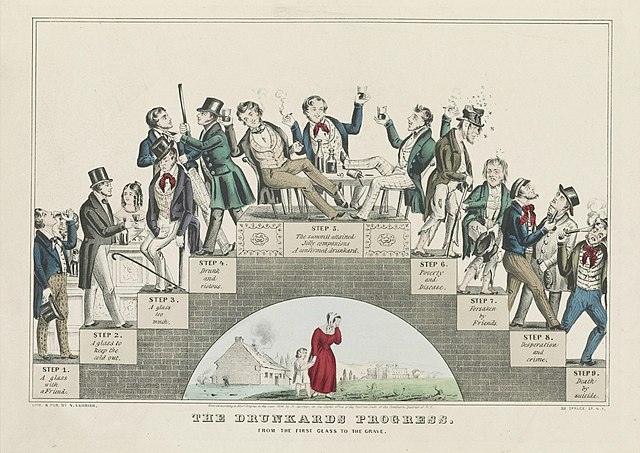Frances Elizabeth Caroline Willard was an American educator, temperance reformer, and women's suffragist. Willard became the national president of Woman's Christian Temperance Union (WCTU) in 1879 and remained president until her death in 1898. Her influence continued in the next decades, as the Eighteenth and Nineteenth Amendments to the United States Constitution were adopted. Willard developed the slogan "Do Everything" for the WCTU and encouraged members to engage in a broad array of social reforms by lobbying, petitioning, preaching, publishing, and education. During her lifetime, Willard succeeded in raising the age of consent in many states as well as passing labor reforms including the eight-hour work day. Her vision also encompassed prison reform, scientific temperance instruction, Christian socialism, and the global expansion of women's rights.
Willard, Frances E.C. 1890-98
Frances Willard
"Let go — but stand by"; Frances Willard learning to ride a bicycle
Willard Grave stone
The temperance movement is a social movement promoting temperance or complete abstinence from consumption of alcoholic beverages. Participants in the movement typically criticize alcohol intoxication or promote teetotalism, and its leaders emphasize alcohol's negative effects on people's health, personalities and family lives. Typically the movement promotes alcohol education and it also demands the passage of new laws against the sale of alcohol, either regulations on the availability of alcohol, or the complete prohibition of it.
The Drunkard's Progress (1846) by Nathaniel Currier warns that moderate drinking leads to total disaster step-by-step.
Songbook used at the Women's Temperance Organization from Wilkinsburg, Pennsylvania.
Sons of Temperance procession, Hill End, New South Wales, 1872
A temperance fountain in Tompkins Square Park, New York City








